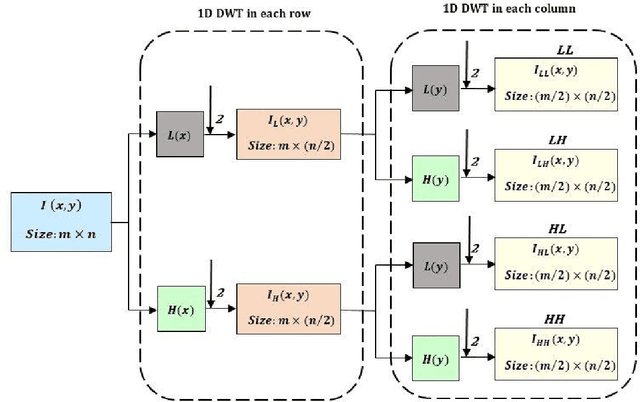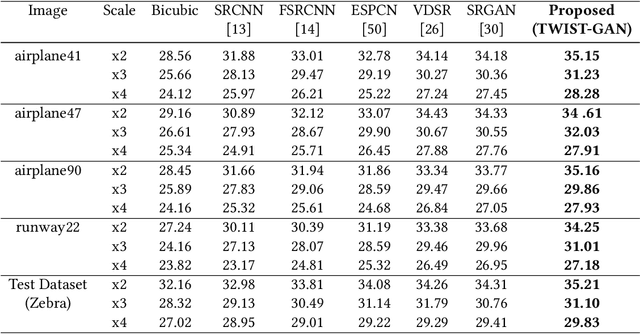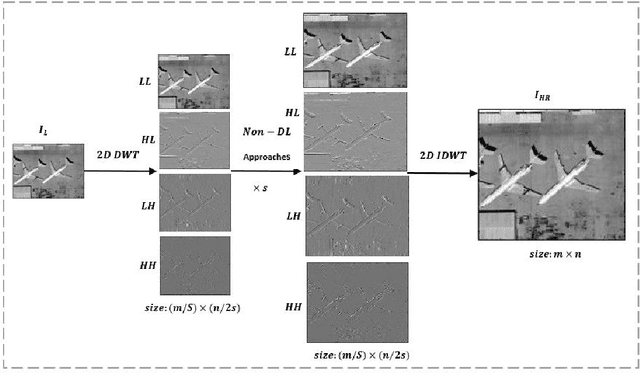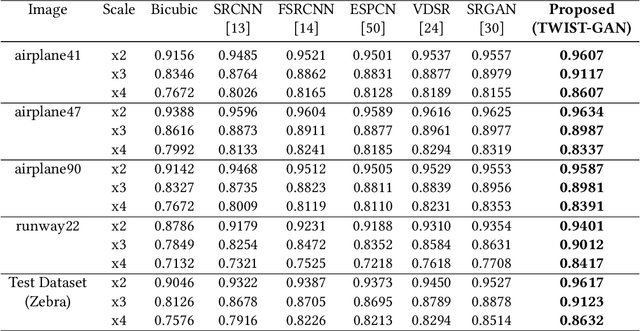Munsif Ali Jatoi
TWIST-GAN: Towards Wavelet Transform and Transferred GAN for Spatio-Temporal Single Image Super Resolution
Apr 20, 2021



Abstract:Single Image Super-resolution (SISR) produces high-resolution images with fine spatial resolutions from aremotely sensed image with low spatial resolution. Recently, deep learning and generative adversarial networks(GANs) have made breakthroughs for the challenging task of single image super-resolution (SISR). However, thegenerated image still suffers from undesirable artifacts such as, the absence of texture-feature representationand high-frequency information. We propose a frequency domain-based spatio-temporal remote sensingsingle image super-resolution technique to reconstruct the HR image combined with generative adversarialnetworks (GANs) on various frequency bands (TWIST-GAN). We have introduced a new method incorporatingWavelet Transform (WT) characteristics and transferred generative adversarial network. The LR image hasbeen split into various frequency bands by using the WT, whereas, the transfer generative adversarial networkpredicts high-frequency components via a proposed architecture. Finally, the inverse transfer of waveletsproduces a reconstructed image with super-resolution. The model is first trained on an external DIV2 Kdataset and validated with the UC Merceed Landsat remote sensing dataset and Set14 with each image sizeof 256x256. Following that, transferred GANs are used to process spatio-temporal remote sensing images inorder to minimize computation cost differences and improve texture information. The findings are comparedqualitatively and qualitatively with the current state-of-art approaches. In addition, we saved about 43% of theGPU memory during training and accelerated the execution of our simplified version by eliminating batchnormalization layers.
 Add to Chrome
Add to Chrome Add to Firefox
Add to Firefox Add to Edge
Add to Edge